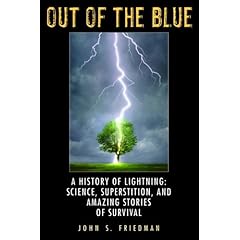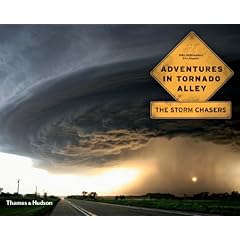Further thoughts on big weather versus the Bible
In grad school I was swept into a class by my advisor at the time. It was a PhD level class taught by one of the more liberal professors in the department. The class was titled "Qualitative Epistemology." I had no idea what any of that meant, but my advisor was so enthusiastic about its addition to the PhD curriculum she grandly ushered me onto its roster. Little did I know that I would be learning a LOT about the history and philosophy of science.People who do not study science for a living do not seem to understand that the world is so vast that no one person can possibly have all knowledge, especially where certain disciplines overlap, but certainly even within a single discipline. That is why science is generally run by "consensus." I learned about peer reviews in this class, and about one peer review in particular where the journal article author's main objective was to ridicule the peer review process. The consensus is a checks and balances system, which can work, but it isn't fool proof. It does, however, give a nod to the vast incomprehensibility of the world by a single person. We ought to see the glory of God in this tiny, oft-overlooked, detail of scientific philosophy.
When the practice of "normal science" is engaged, the variables involved in any research results in a potpourri of results that are expected to reveal some type of pattern. I learned that sometimes they do, and sometimes they don't. And to be honest, I believe it is all by the grace of God that we have understood all that we have. Because these are fallible tests being run by fallible individuals which yield fallible results, I think that it could not be anything BUT the grace of God that has allowed us to harness knowledge of the world as much as we have.
But what of those anomalies? I learned that there are more than we ever hear of. They are either discarded or set aside for later analysis. They exist, though. And all this as the result of fallible beings at the helm of the analysis the entire time.
Which made me wonder: "where is the final authority? could we ever drive ourselves off the edge of a cliff unknowingly because of repeatedly bad data?" And the answer was quite clear: we DO have a final authority. It is the Bible. And when God speaks to Job, and tells him who brings out the whirlwind, we ought to understand that this statement came not after applying the scientific method to the weather, but it came straight from the mouth of God.









1 Comments:
How can the Bible be a final authority? Doesn't something have to tell you whether the Bible is true.
If it's a feeling that tells you the Bible is true or that God wrote it, your feelings are a higher authority than the Bible. If it's science that tells you the Bible is true, science is a higher authority. If it's the "holy spirit", you're back to your feelings being the higher authority.
If the Bible can be the final authority, why not the Quran or the Bhagavad Gita? If you have an answer to that question, wouldn't whatever that answer is be a higher authority than the Bible?
Post a Comment
<< Home